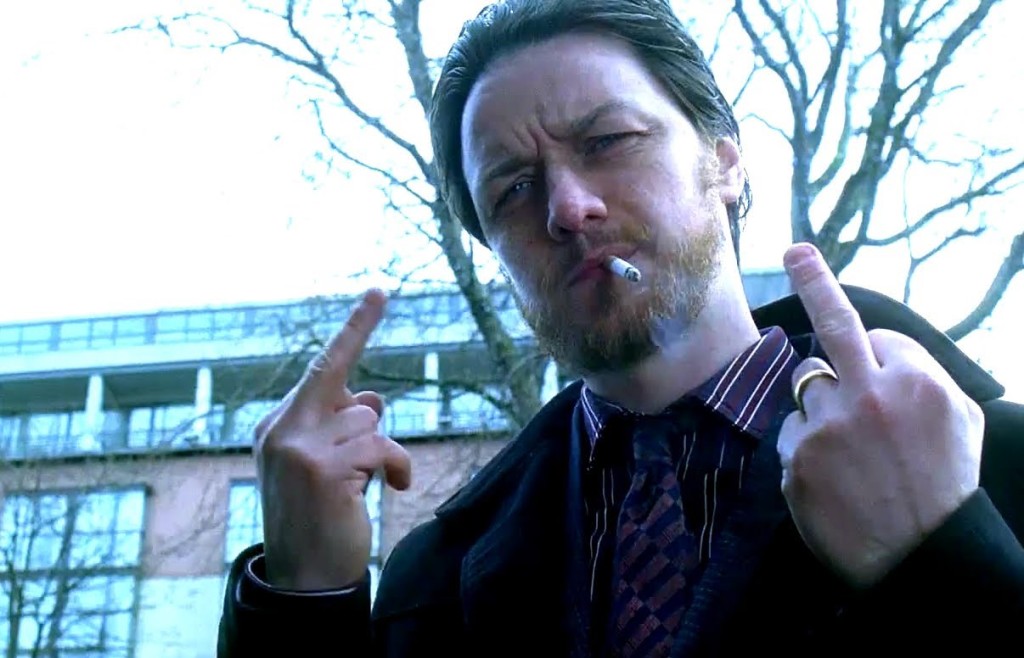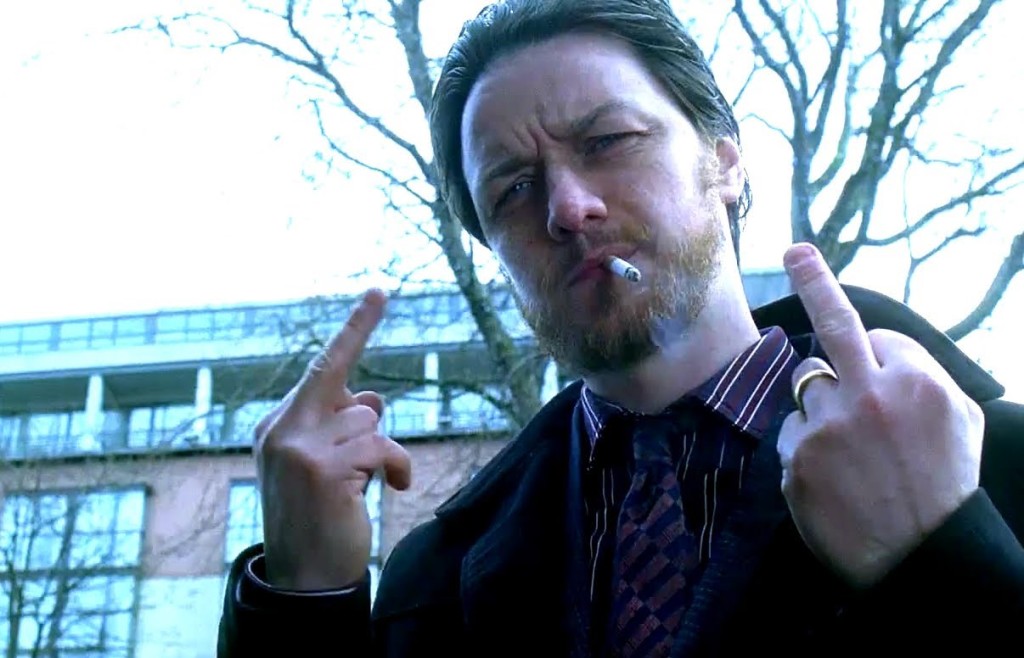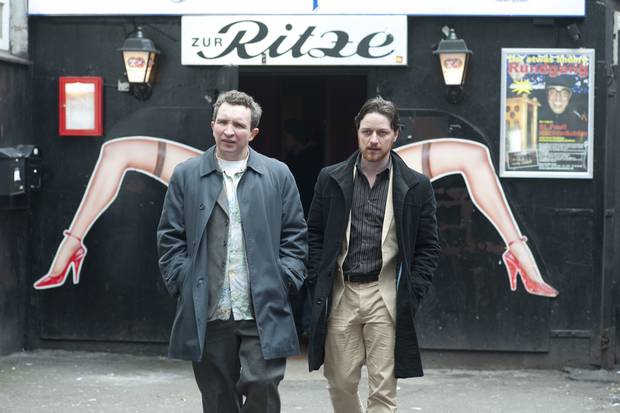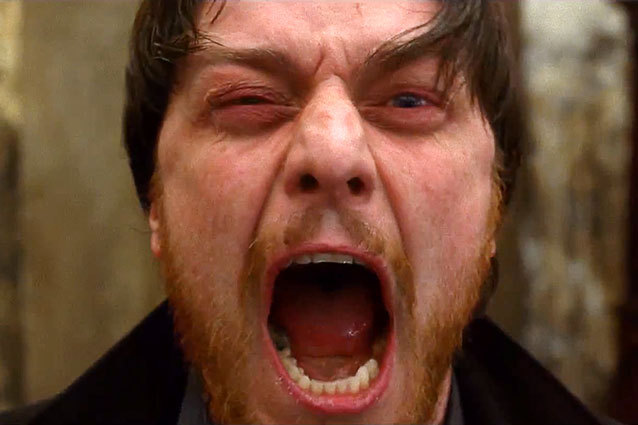It seems odd that with such a wealth of quality material in Irvine Welsh’s back catalogue, it has taken so long for another adaptation of his work to hit the big screen. Aside from The Acid House and Ecstasy, both of which were panned by critics and film review (s), the last time Welsh’s dark, acidic prose appeared on our screens was the 1996 Danny Boyle classic Trainspotting.
But my god, it’s been worth the wait.
Filth follows the exploits of corrupt Edinburgh policeman Bruce Robertson (James McAvoy) who will stop at nothing to get what he wants, and appears devoid of any kind of moral compass. He’s racist, misogynistic, homophobic, and utterly unlikeable. The cocaine snorting, whiskey-swigging anti-hero is in line for a big promotion, which he believes will cause his estranged wife and daughter to return to him.
As Robertson, McAvoy gives the standout performance, fully embracing the sordid subject matter in what has to go down as the role of his career thus far. The Hollywood star is believable and ultimately very frightening, showcasing the darker side of humanity with shocking realism.
The supporting cast is a showcase of British talent, new and old. National treasure Jim Broadbent is delightfully bonkers in the role of Bruce’s psychiatrist who appears in reality only once, but recurs in hallucinations that grow more and more sinister as the film continues. Eddie Marsan shines as Bruce’s only friend, a naïve and lonely accountant who he bullies and takes advantage of. Marsan’s role is tragic, somewhat reminiscent of his role in The World’s End earlier this year. Shirely Henderson, Jamie Bell and relative newcomer Imogen Poots round off the supporting cast.
In the opening third McAvoy’s Bruce Robertson gleefully participates in ‘The Games’; his efforts to manipulate all of his co-workers into scuppering their own attempts to rise up the chain of command. He covertly questions his colleague’s sexuality via graffiti on a bathroom stall, sleeps with another’s wife in an attempt to get her to leave him, and consistently teases another about his penis size – there are no levels this man will not stoop to to get that promotion. So obsessed is he with that increase in rank that upholding the law falls by the wayside. He puts very little effort into solving the murder case that is established in the film’s opening scene, and on one occasion passively observes a drug deal taking place without even breaking his stride.
It’s an absolute joy to watch Robertson’s scheming come to fruition in the film’s first half, but as his mental state rapidly deteriorates, his web of deception begins to fall apart. This is shown mainly through hallucinatory episodes with his shrink (Jim Broadbent). It is in these scenes that we see Bruce’s few moments of weakness, and we have the smallest of insights into how this repulsive character has become the way he is.
Robertson’s hallucinations become more frequent, intense, and terrifying as Filth nears its conclusion. Far from being a gimmick, they actually strike fear into the viewer and help us to understand the terrible depths to which Bruce Robertson’s mental state has fallen. By the film’s final third, it has descended into no holds barred psychological horror territory – a confusing, hallucinatory nightmare.
It probably goes without saying that Filth is incredibly difficult to watch from the outset. It certainly lives up to its title, and its 18 certificate, showing just about every lewd act that could possibly be shown without being banned by the BBFC. You’ll leave the cinema feeling completely shell-shocked. There is drug use, bondage, nudity, transvestism and even statutory rape, amongst other things. The latter occurs in a scene that was met by audible gasps in the cinema, and even caused a few to call it a night there and then. This film certainly is not for everyone; the faint of heart and weak of stomach should steer well clear. Even the most desensitised of cinemagoers will shift uncomfortably in their seats on more than one occasion.
With this in mind, it may seem odd, but on occasion Filth is actually riotously funny. It has a dark, morbid sense of humour, and at times you may feel bad for laughing, but the humour is definitely there. Scenes that make your skin crawl are finely balanced with enough laughs to keep you watching, as well as a heavy dose of morbid curiosity.
Perhaps Filth’s greatest achievement is dispelling the shadow of Trainspotting that has been cast over every Irvine Welsh adaptation since the mid 90s. No longer is Danny Boyle’s seminal film the only quality film inspired by Welsh’s work. This isn’t to say Filth is a better film, but it managed to bring the murky underbelly of Edinburgh portrayed in Welsh’s novels to the screen in an entirely different way to its predecessor without copying it’s style and tone, or disrespecting the original text. Filth avoids the social commentary of 1990s Scotland that is prevalent in Trainspotting, and decides instead to delve into a detailed study of its incredibly flawed lead character.
All in all, Filth is an absolute triumph. Just don’t go and see it with your mum.
Ash is a gentleman and a scholar and can regularly be found showcasing nothing but the finest music here. Give him a listen every Tuesday from 8-9 p.m.
Some of the coverage you find on Cultured Vultures contains affiliate links, which provide us with small commissions based on purchases made from visiting our site.




